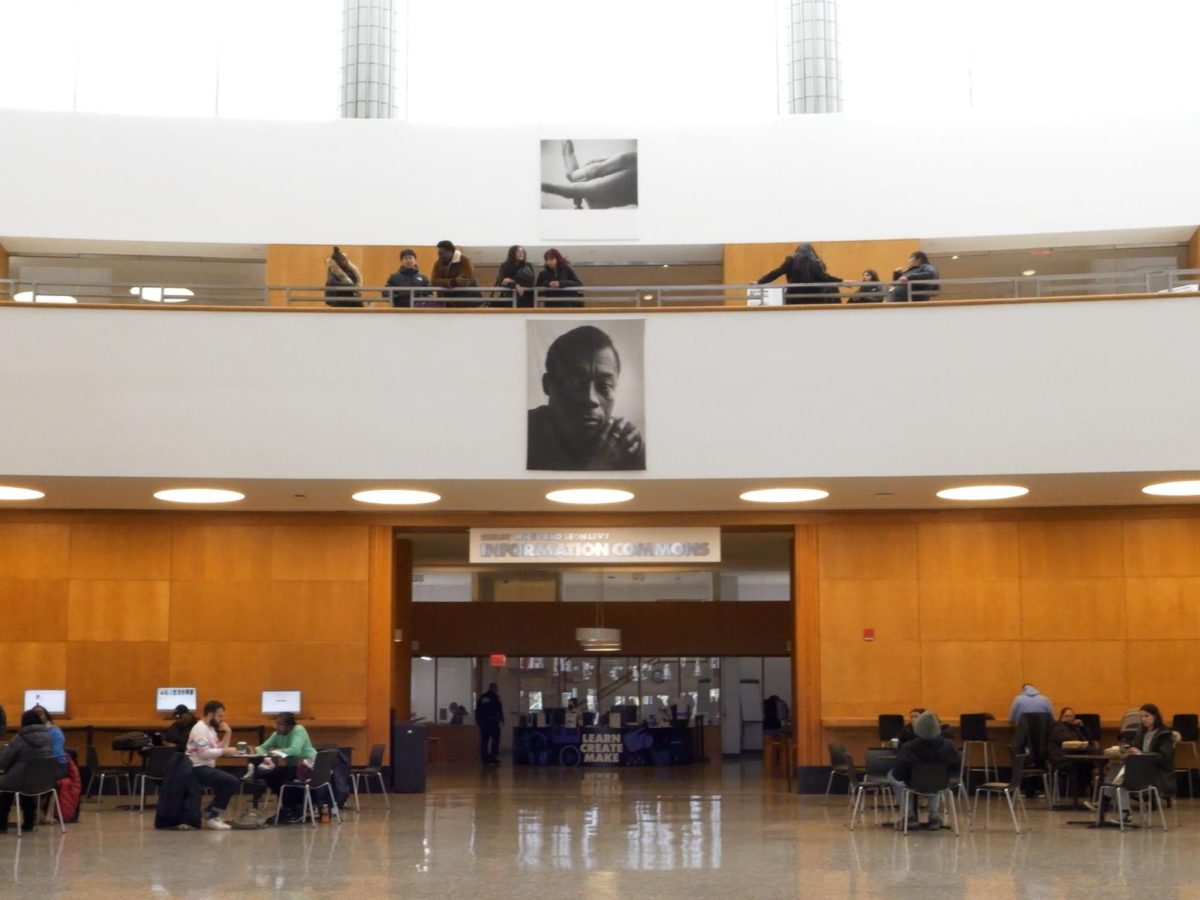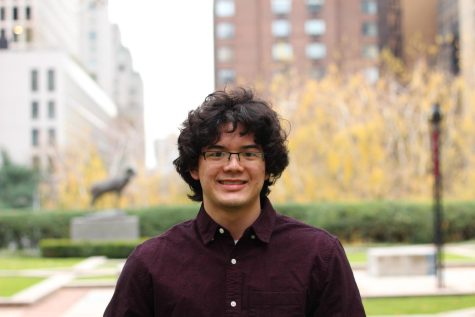The Brooklyn Public Library (BPL) is hosting a centennial exhibition for James Baldwin, the American writer and civil rights activist, on his time in Istanbul. Titled “Turkey Saved My Life – Baldwin in Istanbul, 1961–1971,” the exhibition features never-before-seen photographs of the writer taken by his friend Sedat Pakay.
Baldwin, who died in 1987, would have turned 100 this past August. The work is a celebration of an American literary and philosophical great whose works turned a searing critical eye toward racism, sexism and homophobia in the United States. He wrote with the hope that exposing the country’s flaws would allow it to work toward improvement. Pakay met Baldwin when he was just 19 years old, and their relationship developed to the point that Baldwin sponsored the Turkish photographer’s visa to study at Yale.
In Pakay’s images, Baldwin preens, laughs with strangers and works at a typewriter. He seems to bask in the presence of Pakay’s camera, displaying trust and comfort in his lens. It’s a view of a liberated Baldwin, freed from the weight of being Black and gay in the U.S. and his rising fame in Paris, free to be his imperfect self. The photographs, taken when Pakay was a young photographer, reflect the innocence of their blossoming friendship.
The very fact that Baldwin spent so much time in Istanbul is something not often seen.
The exhibition includes black and white and color film photographs taken by Pakay, as well as frames from “From Another Place.” These images are accompanied by other artifacts, including copies of books Baldwin wrote in Türkiye and Pakay’s contact sheets. The exhibition also included essays written by authors Elif Batuman and Tavia Nyong’o about Baldwin’s experience in Istanbul and his cultural and personal discoveries there.
“There’s something about Sedat’s age at that time that was very disarming, and there was a kind of rapport and a mentorship, perhaps, between them,” Cora Fisher, curator of visual art programming at the BPL, said. Fisher, who co-curated the exhibition, said the images on display were selected for their unmediated access to Baldwin.
“I wanted that kind of intimacy and immediacy — the outtakes, frankly. I wanted people to see things that they hadn’t seen before,” Fisher said.
The very fact that Baldwin spent so much time in Istanbul is something not often seen. This part of the acclaimed author’s life has been relatively obscure for how much it impacted the titanic American figure. Baldwin is best known as a patron of New York and Paris, the cities where he spent most of his life. They figure centrally in his writing as settings and living characters in his stories. Istanbul has no such standing in Baldwin’s literary canon.
“The programming was also very important because a lot of us didn’t know about this very particular kind of expatriate experience,” Fisher said.
While many African American intellectuals spent significant time in Paris in the twentieth century, she said that Baldwin’s experience in Istanbul gave him a unique perspective because “Türkiye is a place that’s more on the margins of Western civilization.”
Fisher called Istanbul “the cultural crossroads between east and west.” Baldwin stayed with his friend Engin Cezzar, an actor and Istanbul native who met Baldwin when he performed in the theater adaptation of Baldwin’s book “Giovanni’s Room” at the Action Theater in New York.
Baldwin directed a Turkish adaptation of the play “Fortune in Men’s Eyes” at a theater owned by Cezzar and his wife Gülriz Sururi. The performance was a true meeting of cultures, a play about queer male carceral experiences written by a Canadian, translated into Turkish and scored by American jazz musician Don Cherry.
There he also wrote “The Fire Next Time” and “Another Country,” two probing works which challenge the American ethos. Baldwin said that he needed to escape the “pressure” of America to break through a bout of writer’s block. In Pakay’s film “From Another Place,” which follows Baldwin during his sojourn, he said, “you can make comparisons from another place, from another country, which you aren’t able to make in America because there is nothing to compare America to when you’re there.”
“I wish more Turkish people knew about him and his time in Türkiye and his influence on Türkiye’s LGBTQ community because I didn’t know. Just not knowing made me sad.” Beyza Emanet, FCRH ’24
That “critical distance” has proven important for Beyza Emanet, Fordham College at Rose Hill ’24. Emanet is from Istanbul and wrote a research paper on Baldwin’s experience in Istanbul in spring 2023. Through her exploration of Baldwin’s Istanbul, the Fordham grad was able to reflect his vantage point onto her own culture.
“When he was in Türkiye, what he would say is, ‘because I am in another country right now, I can take a good look at America with a new perspective,’ and I think it’s the same for us Turkish people here, too,” Emanet said. “We’re here, and we can take a good look at Türkiye right now. And somehow, that brings us together here.”
For Emanet, “Turkey Saved My Life” and her own research have expanded her understanding of her home country.
“I wish more Turkish people knew about him and his time in Türkiye and his influence on Türkiye’s LGBTQ community because I didn’t know. Just not knowing made me sad,” Emanet said.
Keri Walsh, director of Irish Studies at Fordham, was Emanet’s professor. She encourages students to engage with exploratory work like Emanet’s from a personal place.
“I’ve seen my students in the last few years as I’ve supported various independent research projects, they often do begin with some question that seems like a quest for the self to learn something more about one’s own identity,” Walsh said.
“I think if Baldwin were with us still, he would want us to continue to do the work of interrogating the conditions of our collective life.” Cora Fisher, curator of visual art programming at the Brooklyn Public Library
Walsh teaches Baldwin’s essays from his time abroad, especially in Paris, where he observes that many Americans in France aren’t seeking to connect with a new culture, they’re seeking an escape from home. The critical moment occurs when the mystique of a new place is lifted.
“What Baldwin really comes away from all his abroad essays with is this realization that every place is real, no matter how much you might fantasize about going somewhere, escaping somewhere, that there would be some place that you could get away from all the things in the world that are bad,” Walsh said. “Injustice and racism and inequality — every place has them, and in every place you need to be engaged in the struggle.”
Fisher echoes the idea that Baldwin’s time abroad was not simply an escape from the tremors of civil rights era America. She believes that the exhibition offers an opportunity for a contemporary audience to look at America through Baldwin’s lens.
“This exhibition is more than a nostalgic travelogue. I want people to understand the many points of contact that it has with our current moment,” Fisher said. “I think if Baldwin were with us still, he would want us to continue to do the work of interrogating the conditions of our collective life.”
The exhibition was curated through BPL Presents, a nonprofit that hosts around 350 free events annually at BPL locations throughout the borough and Atesh M. Gundogdu, a Turkish curator at Artspeak NYC. On Mar. 8, BPL Presents will host a walkthrough and “Night in the Library” event at the Central Library.
Fisher welcomes Fordham students to see the show as she sees a connection between students finding their place in the world and the events hosted by BPL Presents like “Turkey Saved My Life.” She encourages students to see the BPL as a resource and a place of community.
“We have a real alignment with Fordham in the sense that social justice is extremely important to our work, and that’s the kind of programming that we tend to uplift,” Fisher said. “Thinking about civics, thinking about public space, thinking about our collective being, so it’s a place for any young folks to convene, to get inspired, to study, to read. We welcome everyone to come through.”
“Turkey Saved My Life” is open to the public until Mar. 30 in the Grand Lobby of the BPL Central Library.


